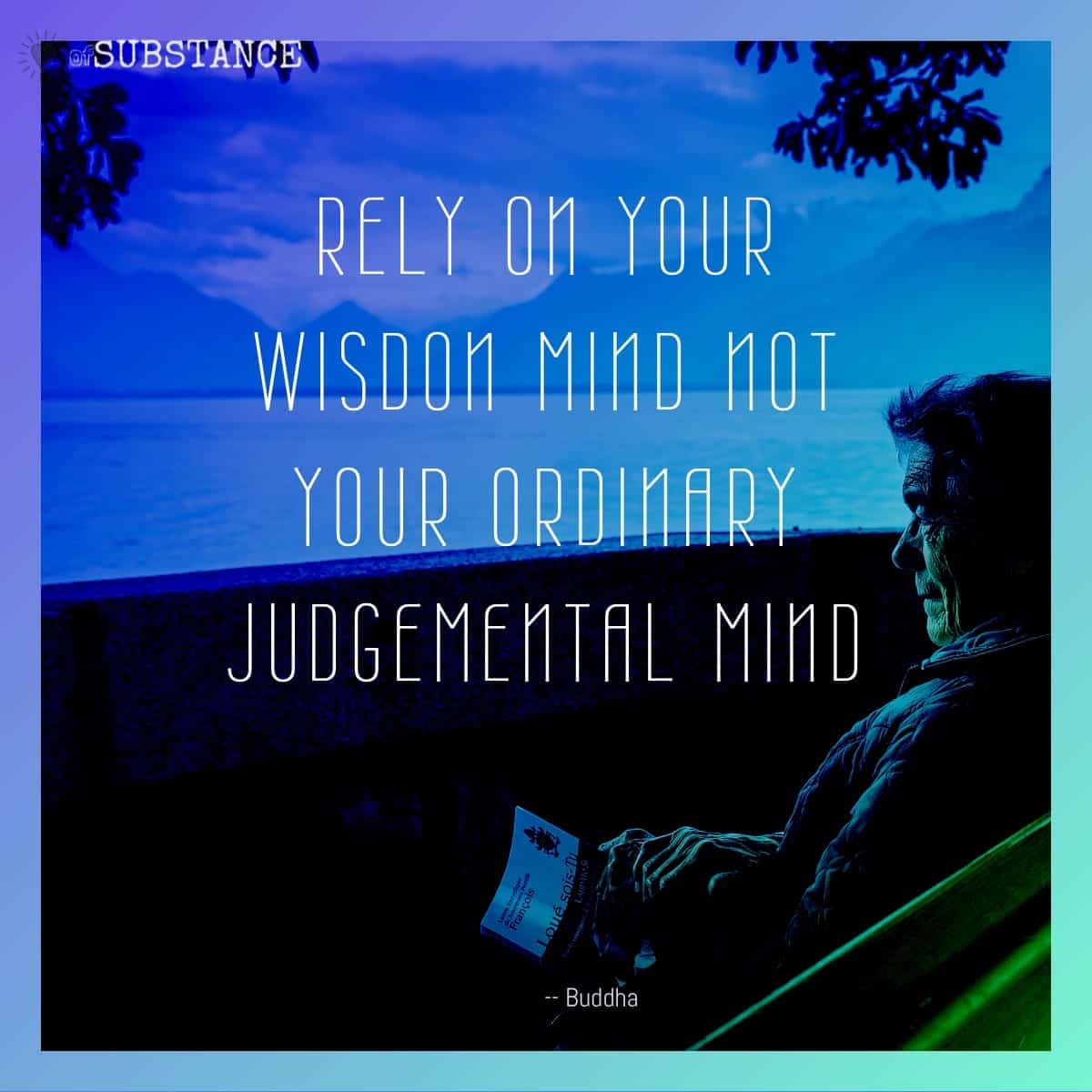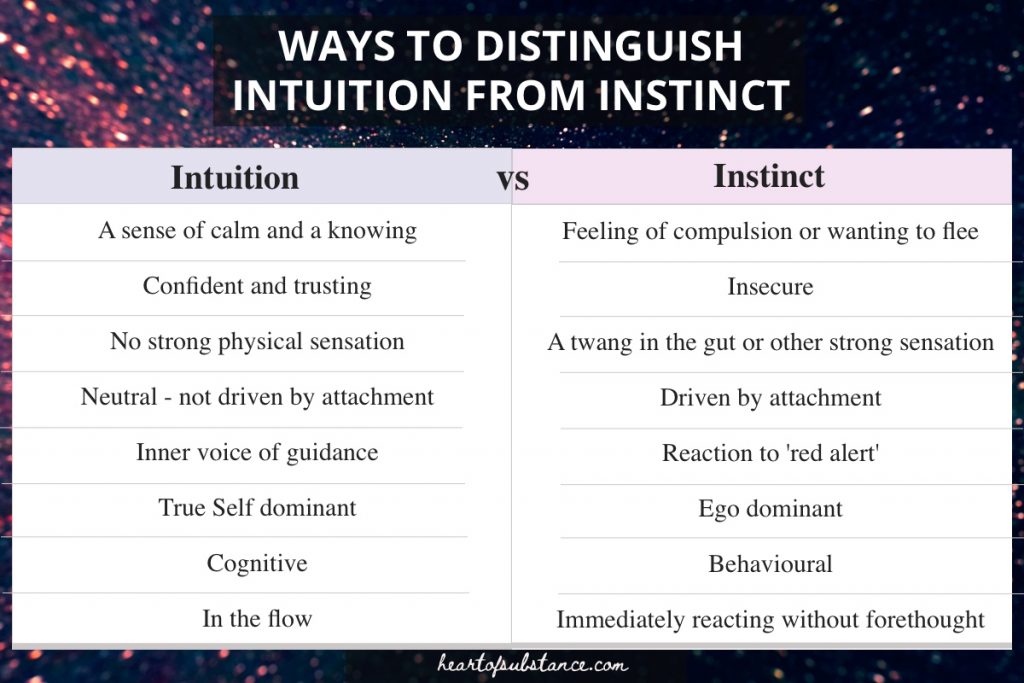Is it relationship anxiety or intuition? It’s hard to know when you’re emotionally involved. Here’s my take on how to listen to your intuition in relationships and answer to: is your gut feeling always right?
Is your gut feeling always right in relationships?
That gut feeling you have in a relationship might be right. Or you could be confusing intuition with anxiety due to insecurity. Ask yourself this: is it about old wounds or are there real red flag reasons?
Let’s look at this insecurity/fear vs intuition in a relationship.
Questions that arise around inner guidance versus apprehension in relationships…
Should you trust your gut feeling that someone likes you? Are they cheating on you?
How can you tell if she or he isn’t the one? “Listen to your heart”… We’ve all heard that, haven’t we? Wasn’t there a song about it? Who was it that sang that?
Follow your gut feelings…another common response.
When you’re unsure whether to trust your intuition or fear in a relationship, it can be helpful to learn more about trusting your intuition.
Trusting Your Gut Feeling About Someone You Like
The problem with trusting your gut feeling with someone you’re emotionally involved with is that emotions can cloud your intuition.
Research indicates this, especially with negative emotional states. Bolte et al. 2003 found “a strong effect of mood on the ability to make intuitive coherence judgments”.
red flags in a relationship
A ‘red flag’ in a relationship can be a sign that the relationship you’re in is not what it seems.
Red flags range from entirely benign things to blaring infidelities and are subjective.

(Red flags could turn out to be either nothing or a genuine reason for change.)
But…Ignoring these signs can lead to an unhealthy relationship. It is important to recognize these red flags early on and avoid emotional trauma.
Some common red flags in a relationship include displays of the following:
- Coming on strong at the beginning of the relationship
- Controlling behavior
- Jealousy
- Lack of trust
- Disrespect
- Says another’s name during intimate times
- Is secretive about things
- Inconsistencies, dishonesty
- Is abusive
- Disappears without saying anything
- Flirts with others
- Gaslights you (makes you feel you’re to blame for what they’ve initiated)

Red flag behaviors can manifest in various ways, such as constantly checking your phone or social media, making decisions for you without your input, or making you feel guilty for spending time with friends and family.
I could probably list a whole bunch of things and I know from comments that you could too. By the way, there may be no substance to these.
.. but how do you know?
…by listening to your intuition.
Intuition vs paranoia cheating feeling
Should you trust your gut feeling about cheating, on whether your partner is betraying you? How do you know whether it’s relationship anxiety or a gut feeling that’s right?
Is the fear of rejection or loss creating paranoia that’s causing that twang in your gut?
Females have this women’s intuition in love – you might have this gut feeling he’s cheating, no proof needed, right? I wrote about this idea that women’s intuition never fails – covers real-life stories.
relationship anxiety or Gut feeling about cheating that’s real
If you have a gut feeling that your partner or friend is not being honest with you or a gut feeling he or she’s cheating and no proof exists, are you just being paranoid?
Trust your intuition vs feeling paranoid…
If that twang in your gut is instinctual, i.e. due to insecurity or the perception of fear that’s unfounded, it could drive you to self-sabotage a potentially happy relationship.
Might you attract the very thing you wish to avoid…loss, betrayal, and rejection?
In hindsight, this may be clear, but in a relationship when you’re emotionally attached, it’s not. I know.
Research indicates that emotional states affect how we judge things and a negative mood will signal more analytic problem-solving rather than intuitive coherent judgment (Bolte et al. 2003).
On the other hand, that twang could be warning you of things not being right and save you from grief ahead – see my article on intuition in respect of narcissists.
Intuition vs insecurity – you’re Not good enough
Is it anxiety caused by fear of loss because you covertly think you’re not good enough?
Regarding self-sabotage vs gut feeling let’s look at anxiety and fear…
Anxiety and fear vs. intuition in a relationship
The dilemma of the ‘intuition vs paranoia cheating’ paradigm is basically about fear vs an inner knowing about your relationship. Are you suffering from a form of relationship anxiety or is intuition telling you something real?
From a metaphysical perspective…the flip side of fear that leads you to fixate on what’s not real is the manifestation of the very thing you’re imagining…a betrayal.
In any case, fear drives away love, the emotion you so desire.
Don’t let fear control you or you’ll be living a state of anxiety, rather than living intuitively. If logic doesn’t tell you this. Songs. Movies will!
But…it’s difficult when strong emotional ties are invoked and probably much worse when a past significant relationship involved cheating, rejection, failure, or loss. For me, the loss of my mother in my teenage years affected lasting relationships until one day I realized my subconscious was creating this pattern of fear and insecurity in that department and I took steps to heal the past before moving on. It meant rewriting my subconscious belief about relationships and loss.
It can take years of soul-searching before you realize you are being driven by fear…fear of rejection, fear of loss.
Heart of Substance, Instinct vs Intuition
What to do…
- Check to see if fear is the likely driver
- Recognize the origin of the fear
- Is it a real threat or an old wound that needs healing
When it’s a Genuine threat
Don’t underestimate intuition and instinct working conjointly where your intuition picks up deceitfulness or a real threat (red flags) and triggers the emotions of fear and insecurity.
Do not disregard your instincts if they are informing you of real danger. If your relationship or situation is an unhealthy one and the red flags are abuse – seek professional advice.
The red flags are telling you something is not right.
There are ways to help decipher this as mentioned in the how-to listen to your intuition section below.
How to listen to your intuition in relationships
Listening to your intuition in relationships is tricky when it involves a strong emotional attachment. This is my own experience and I see it in other people. It is also widely written about.
How to listen to your intuition, in this case, is the same for any significant path in your life…reduce the ‘noise’, calm the emotions, and still the mind, but calming the negative emotions may be the hardest.

How Do I Follow My Intuition In Love Relationships?
To follow your intuition in love relationships, try looking at the relationship objectively like a third person (an outsider) or try deep calming activities, to allow your intuition room to guide you. This is about quietening the emotions so you can tune into your intuition that you can trust. Recall in Intuition vs Instinct, that intuition is like a soft whisper, rather than a pang in the gut or a feeling of urgency.
There are a few techniques you could try to allow your intuition to guide you, such as the following:
- Daily journaling. Write whatever comes to mind, but keep writing each day and then look back at your journal entries. Try looking at it as an outsider or third person devoid of emotional attachment.
- Hypnosis, meditation, or similar for deep relaxation so you can reach the alpha state of feeling calm and objective.
- Take a trip away from the situation so you come back with a fresh perspective.
Intuition and relationships: you know when you know
This guide aims to help you decipher what your gut feelings in a relationship are saying. Use it with the chart below showing the characteristics that differentiate between intuition and instinct, driven by fear, either by real or perceived threats.

Some folk look for answers from external sources, like psychics. Tarot is a medium for this. The positive is you’ll get an outside view, an objective look perhaps and this may switch off the anxiety for a while or it could worsen it. The negative is that there’s no way to tell if the interpretation is true. Are you simply being told what you want to hear?
The answers are inside you. Trust your intuition. You know when you know.
By the way, it was Roxette who sang Listen to Your Heart.
Listen to your heart when he’s calling for you
Listen to your heart, there’s nothing else you can do
I don’t know where you’re going and I don’t know why
But listen to your heart before you tell him goodbye
Roxette, from Listen to Your Heart
Final thoughts on is intuition always right
The ‘just knowing’ in romantic relationships is where even the most intuitive of us can get caught out. It takes a while to understand the effect of negative emotions. The above is my take from lived experience and from what I’ve seen with numerous others. Perhaps you have had similar or different experiences. Let me know in the comments.
References
Pubmed: Bolte A, Goschke T, Kuhl J. 2003. Emotion and intuition. Psychol Sci. 14(5):416-21. doi: 10.1111/1467-9280.01456. PMID: 12930470.




